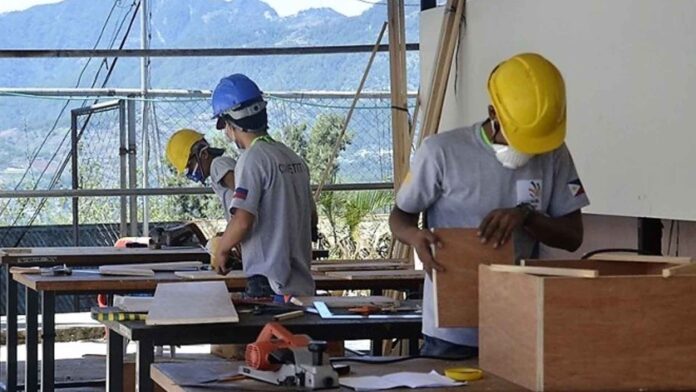The government must increase technical and vocational education and training (TVET) programs that provide higher level certifications that will mean jobs with bigger responsibilities and higher pay.
A study conducted by the office of Senator Sherwin Gatchalian showed that based on data provided by the Technical Education and Skills Development Authority (TESDA) as of May, only 0.2 percent or 31 of TESDA-accredited TVET programs equip learners with the National Certificate (NC) Level IV.
Only 3.7 percent or 548 are TVET diploma programs while NC I (7.3%) and NC II (79%) make up 86.3 percent of TESDA-accredited TVET programs.
Gatchalian said workers with NC Level IV certificates can perform a wide range of complex and non-routine applications and also involve leading, guiding, and organizing others.
“Most of our TVET trainees are trained with entry-level skills through NC I and NC II. Very few go through NC III, NC IV, and the higher levels which focus on more complex skills that companies are looking for,” Gatchalian said in a statement over the weekend.
Diploma programs or NC V also offer tech-voc trainees, graduates, and middle-level workers better chances to qualify for jobs with bigger responsibilities, such as supervisors.
Gatchalian also pressed the need to increase enterprise-based TVET programs.
Based on the six-year average of enrollment in TVET programs from 2014 to 2020, only 4 percent were enrolled in enterprise-based programs, 50 percent were enrolled in community-based programs, and 46 percent were enrolled in institution-based programs.
“What we need to increase is the enterprise-based training because it gives TVET students the opportunity to work in the private sector,” Gatchalian added.
In 2022, TESDA signed 649 memoranda of agreement, 16 memoranda of understanding, and two memoranda of partnerships with various public and private organizations to boost the TVET sector.
“By expanding partnerships and international cooperation, we can ensure that the tech-voc training of the country is at par with international standards. These also support our ongoing pursuit for an area-based and demand-driven TVET,” according to a previous TESDA statement.
TESDA also continued to strengthen the Industry Boards which are independent organizations that have an active role in the governance of TVET. These Boards are quadripartite bodies formed with representatives from employers, labor, learning institutions, and government.
To support the Philippine Development Plan 2023-2028, TESDA is developing the National Technical Education and Skills Development Plan, the TVET sector’s roadmap for the next five years that will work on the strategies of new mindset, restyle, reskill and digitalization.
In a March 2021 study on TVET in the Philippines, the Asian Development Bank identified work-based learning as a globally recognized best practice to provide students and apprentices with technical knowledge and practical skills.
Gatchalian has filed a measure to embed accreditation in the technical-vocational livelihood track of senior high school programs through the Batang Magaling Act (Senate Bill No.2022).
The measure seeks the creation of the National and Local Batang Magaling Councils to strengthen the linkages and collaboration among the Department of Education, local government units, academic communities, and industry partners to address the mismatch between the skills of K to 12 graduates and the demands of the labor market. (PNA)






